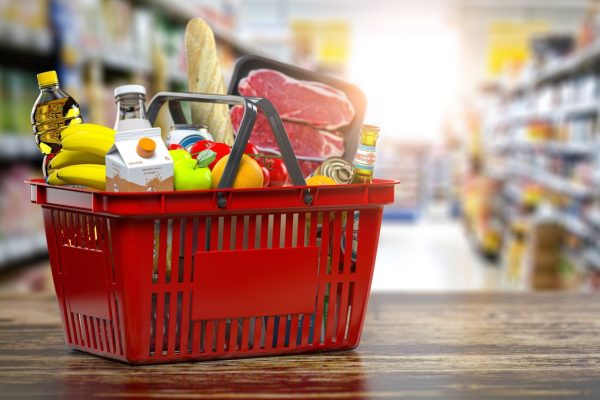A DROP in the Falkland Islands Retail Price Index (RPI) for the year Q3 2023 to Q3 2024 was reported by Economist Andy Wu in Standing Finance Committee on Wednesday.
The decrease of 0.1% has resulted in the lowest rate of inflation since Q1 of 2021. The largest contributor to the decrease came from fuel and food, however there was an increase in recreation & culture and restaurants & hotels.
Retail prices fell during Q2 and Q3 this year by 1.4%; food and non-alcoholic beverages contributed most to this figure as they decreased by 1.16% in the quarter. Recreation & Culture prices increased by 0.44%.
Over the course of the year, the category of Communication made a negative contribution to the inflation data due to the way in which the RPI is calculated. Sure South Atlantic increased their broadband data allowances, therefore effectively decreasing the price per gigabyte.
In conclusion, Mr Wu stated that while the Falklands might have entered a period of deflation technically, the risk of a deflationary spiral was still limited.
The latest data points were “some welcome good news”. The quarterly deflationary outcome, the report stated, “is just a snapshot in time and may not be sustainable at this level given recent rises in fuel costs on the back of intensifying geopolitical conflicts. To be specific, the Middle East crisis, which has recently caused crude prices to pick up noticeably again, a potential to reverse the decline in Stanley inflation.”
Speaking on the report MLA Roberts said, “it’s very welcome to see this dropping, albeit very slightly, but I think we still need to note that it [inflation] is still incredibly high.
“People have been feeling these pressures now for three, four years… We can’t consider ourselves to be out of the cost of living crisis while things are so high.”
Mr Wu agreed, “make no mistake, overall price levels are still very high versus pre cost of living crisis so I think we all need to bear that in mind.”
With the Falklands reliant on imports, the report also warned that the upcoming US presidential election could impact the exchange rate between the pound and the dollar. Imported goods become “noticeably more expensive” when the pound falls but more affordable as the pound strengthens.
The methodology behind the RPI and the basket of goods is being reviewed. The plan is to roll out a survey by the end of the year and Mr Wu hopes to have some preliminary results within six months.
Some MLAs took issue with the way the price of internet is included in the RPI. “This is a discussion we have been having for at least six years, around the internet,” MLA Leona Roberts commented, “that’s something that has got to be addressed when it comes to the methodology… I think we need a completely new way of thinking about it… the reality is one gigabyte doesn’t go as far as it used to.”
The reasoning behind tracking the price of one gigabyte of internet was explained in the paper with the example of tracking the price of 1g of an apple given.
MLA Mark Pollard said, “if the apples had some sort of disease that were making them progressively smaller and less nutritious then you could compare them. You cannot compare megabytes to apples, they are simply not the same thing.
“If we cannot find a way to sort out the methodology, then either zero it in terms of the overall effect on the basket of goods or take it out. I’ve never agreed with the methodology.”
MLA Gavin Short added, “it doesn’t matter whether you double the amount of megabytes I have, it still costs me say £50… my disposable income remains the same.”
Concluding her thoughts MLA Roberts added that the price per gigabyte, “has been having this artificial negative impact [on the RPI] for years.”
Summary Financial Report
In the Summary Financial Report presented by Senior Accountant, David Livermore, the Year to Date surplus was £5.3m as at end of September 2024 and shows an adverse variance against budget of £5.4m which was primarily attributed to the Corporation Tax receipts being £7.3m lower than budget.
MLA Pollard asked for an explanation as to why corporation tax had not been received as predicted.
Financial Secretary Pat Clunie stated that the Tax Office were looking into this, “there’s some preliminary findings, there is nothing that stands out on its own as being one key driver. There are numerous things that are all coming together to affect this year’s tax.”
Mr Clunie explained that “it is reasonably complex” trying to determine corporation tax receipts to “gain the correct story.”
MLA Pollard said, “I’d like to understand sooner rather than later.”
Also contributing to the adverse variance was Investment Income being £3.5m behind. For this item, the report states that the figure was due to transferring the investment portfolio to HSBC.
Question of new
investment managers
Penguin News contacted the Financial Secretary to ask why FIG had decided to change their investment managers and what the costs involved with the change were. Mr Clunie explained that the change took place following a review by FIG’s investment consultants PMCL. “The review was undertaken to ensure that our fund managers were performing in line with benchmark expectations, provide an efficient service and the fees represented value for money,” Mr Clunie said, adding, “there were no costs involved in moving the funds between managers.”
Favourable items contributing to the YTD surplus were Personal Tax of £0.7M due to pension drawdowns, PWD electric income of £0.6m, and Operating Costs of £4.5m largely due to vacancy lag and delayed invoicing.


















